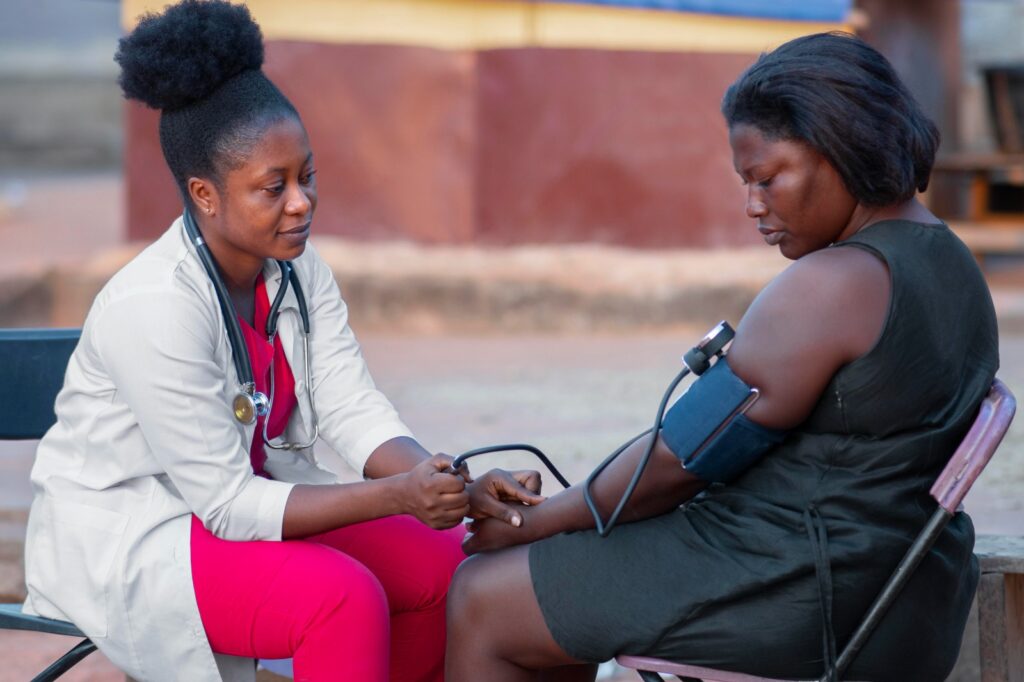Introduction
The Role of Health Care Professionals in Identifying and Addressing Domestic Violence
Domestic violence (DV) represents a worldwide public health emergency, impacting one in three women and one in four men across the globe, as stated by the World Health Organization (WHO). In Nigeria, the National Demographic and Health Survey (NDHS 2018) indicated that 31% of women between the ages of 15–49 have encountered physical violence, with numerous instances remaining unreported due to fear, societal stigma, or a lack of confidence in the justice system. In this article we’ll be identifying and addressing the role of health care professionals in domestic violence.
Importance of early identification
Many individuals affected by domestic violence initially appear in healthcare environments with physical wounds such as bruises, fractures, burns, or internal injuries. Nonetheless, certain indicators may be less visible, including chronic pain, repeated emergency visits, anxiety, depression, or unexplained stress-related issues. Victims may minimize or justify their injuries, frequently attributing them to minor accidents. Hence, it is essential for healthcare professionals to identify patterns and stay alert in situations where explanations seem flimsy, or injuries seem to recur.
For instance, a 32-year-old woman, Grace, came to the emergency department with a broken wrist and several bruises. She stated that she had fallen, but her body language showed she’s trying to hide something, she was hesitant in trying to talk, and indications of fear when her husband spoke for her—implied otherwise. Her situation serves as a reminder that domestic violence is frequently concealed behind minor medical complaints.
Training and Awareness: An Essential Requirement
To successfully intervene, healthcare professionals require adequate training on recognizing, inquiring about, and assisting victims of abuse. Basic screening instruments such as the HARK (Hurt, Afraid, Rape, Kick) questionnaire can aid in evaluating risk factors. However, the manner of approach is equally significant as the screening tool itself. Inquiries should be made in a confidential, non-critical, and empathetic way to promote victims’ willingness to share.
Building Trust and Ensuring Confidentiality
Survivors of domestic violence frequently worry about the repercussion if they reveal the abuse. Healthcare providers must establish trust by guaranteeing confidentiality, clarifying their responsibilities, and enabling the patient to make the right choices. In certain situations, mandatory reporting regulations demands that healthcare providers inform authorities, particularly when minors or at-risk adults are concerned. However, in other circumstances, they should honor the victim’s independence while providing assistance.
Providing Resources and Referrals
Identifying domestic violence is merely the initial step, assisting victims in obtaining support is just as important. Healthcare professionals should be provided with details about shelters, hotlines, counseling services, and legal assistance to lead victims toward safety. Medical facilities should create collaborations with domestic violence organizations to offer prompt aid.
Legal and Ethical Considerations
Laws concerning domestic violence differ by area, and HCPs need to understand their legal obligations. In certain situations, it is a must to report domestic violence, particularly when children or vulnerable individuals are in danger. Ethical factors are also relevant, weighing patient confidentiality against the obligation to avert harm.
The Effect of Tackling Domestic Violence on Victims’ Health
Taking action in instances of domestic violence offers significant health advantages. Individuals who obtain prompt assistance are more inclined to break free from harmful environments, restore emotional balance, and prevent lasting health issues. Ongoing ailments like post-traumatic stress disorder (PTSD), depression, and substance misuse can be alleviated when intervention occurs at an early stage.
Conclusion & Call to Action
Health care professionals play a crucial role in identifying and addressing domestic violence. By being observant, trained, and compassionate, they can help break the cycle of abuse. However, tackling domestic violence requires a team effort, including social workers, legal advocates, and community organizations.
Hospitals and clinics must invest in training, establish clear protocols, and create safe environments for victims to seek help. Prevention is just as important as treatment.
Call to Action:
Healthcare professionals should educate themselves and others about domestic violence. If you or someone you know is affected, seek support from trusted professionals or local services. Together, we can build a safer, healthier society.









